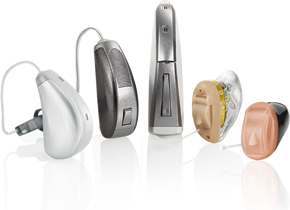Allergies and hearing loss: What’s the connection?
As spring rolls in, so do seasonal allergies, bringing along their usual symptoms: runny nose, sore throat, and itchy eyes. But did you know that allergies can also impact your hearing?
Allergy-related hearing loss
Allergies can lead to conductive hearing loss, where sound transmission is blocked during its journey from the outer or middle ear into the inner ear. This blockage can occur when allergies cause itching or swelling in the outer ear and ear canal.
Allergies can also cause fluid build-up in the middle ear, leading to a clogged Eustachian tube. This can result in a feeling of fullness in the ears and temporary hearing loss. Since fluid build-up can breed bacteria, it may also cause ear infections, further affecting your hearing.
Although the inner ear is least likely to be affected by allergies, it can cause symptoms like dizziness, pressure, and tinnitus if infected. Allergies may also trigger Meniere’s disease, increasing the risk of hearing loss.
Sudden hearing loss
Sudden Sensorineural Hearing Loss (SSHL), or sudden deafness, shouldn’t be confused with allergy-induced hearing loss. It can happen without warning, either gradually over a few days or all at once. Factors like head trauma, autoimmune diseases, infections, poor blood circulation, ototoxic drugs, or neurological diseases cause SSHL. SSHL often occurs with feelings of fullness or pressure in the ear, tinnitus, or dizziness.
While it might be tempting to attribute sudden hearing changes to allergies, it’s crucial not to dismiss them. If it’s SSHL, the best chance of restoring hearing is by starting treatment within the first couple days.
Contact us as soon as possible if you notice any sudden hearing changes. They can evaluate your ears and determine if the hearing loss is due to an obstruction like swelling or fluid (caused by allergies) or if it results from a more severe issue affecting your ears’ ability to process sound.
When to seek help
Hearing loss can significantly impact your health and should never be taken lightly. Even if you think it’s just a symptom of your seasonal allergies, delaying treatment can worsen its effects. While it may be challenging to differentiate between hearing loss caused by allergies and sudden hearing loss, we can help make the distinction and recommend the best course of treatment to protect your hearing.








